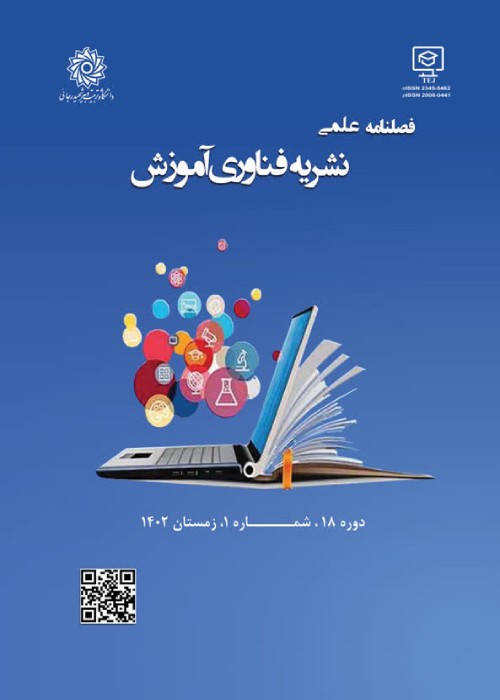Designing Curriculum Model for Using Informal learning based on Authorized Social Networks toward Teacher Candidates Professional Development
In recent years, social networking sites and software have become one of the most influential phenomena among new technologies. Student-teacher learning and their professional development also take place in this context, both formally and informally. In this regard, the purpose of the present study is to design a curriculum model for the use of informal learning based on Authorized social networks to develop the student-teacher profession.
The method of this research was done with a multi-method approach. To design the above model, the grounded theory method was first used. Participants in this study were all primary school teachers in Farhan Gian University of South Khorasan in 2018-2019. Based on purposive sampling with semi-structured interviews, until the theoretical saturation of the data, 15 of these students were interviewed. To analyze the data, using the dimension analysis approach and during the open, pivotal and selective coding steps, the existing model of informal learning based on student-teacher social networks was extracted for their professional development. To obtain the validity and verifiability of the data, two methods of reviewing the participants and reviewing the non-participating experts in the research were used. In the end, with the theoretical research method and based on previous findings, at first, the nine elements of Klein were the basis of the work and based on it, the desired model was designed. In the next step, the basic concepts or the same characteristics of the curriculum elements and structural concepts, which are in fact the same as identifying the relationship between these elements, were identified. Finally, the model presented by the experts was validated.
Findings showed that goals in unpredictable social networks are flexible and continuous, which have the property of snowballs and should be validated. Content on social media requires features such as; be in tune with the audience, pave the way for critical thinking, action and screening. Learning activities; They create self-sufficiency and belonging, satisfy desires, motivate and lay the groundwork for individual and group education. Materials and resources; Diverse, easy to access, fluid and interactive. Learner grouping; It is non-linear, optional and based on extensive collaboration and online responsiveness. Also, on social media; Enough time to reflect on the answer, the possibility of communicating with communication nodes at any time, the possibility of wasting useful time with attractive content and achieving a large amount of information in a short time. In addition, access to information and educational resources is available everywhere, and the place of learning is the creator of opportunities and is based on ecology and interactive communication. Teaching strategies; Problem-oriented, interactive, based on inclusive buoyancy and with flexible instructor guidance. Evaluation methods; It is quality-oriented, process-oriented, self-assessing, continuous and based on instant feedback. The findings also showed that most experts confirmed the validity of the model in the criteria of validity, coherence, perceptibility, innovation, usability, acceptability and comprehensiveness.
Due to the characteristics of social network-based curriculum elements, curriculum planners are suggested to use the coordinates of these elements to design a curriculum based on social networks in order to achieve the development of student-teacher careers. It is also suggested that Farhangian University provides the necessary infrastructure for the purposeful use of social networks for the development of student-teacher professions.
- حق عضویت دریافتی صرف حمایت از نشریات عضو و نگهداری، تکمیل و توسعه مگیران میشود.
- پرداخت حق اشتراک و دانلود مقالات اجازه بازنشر آن در سایر رسانههای چاپی و دیجیتال را به کاربر نمیدهد.




